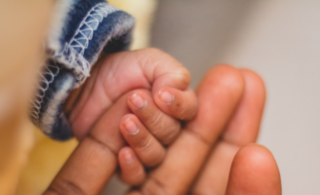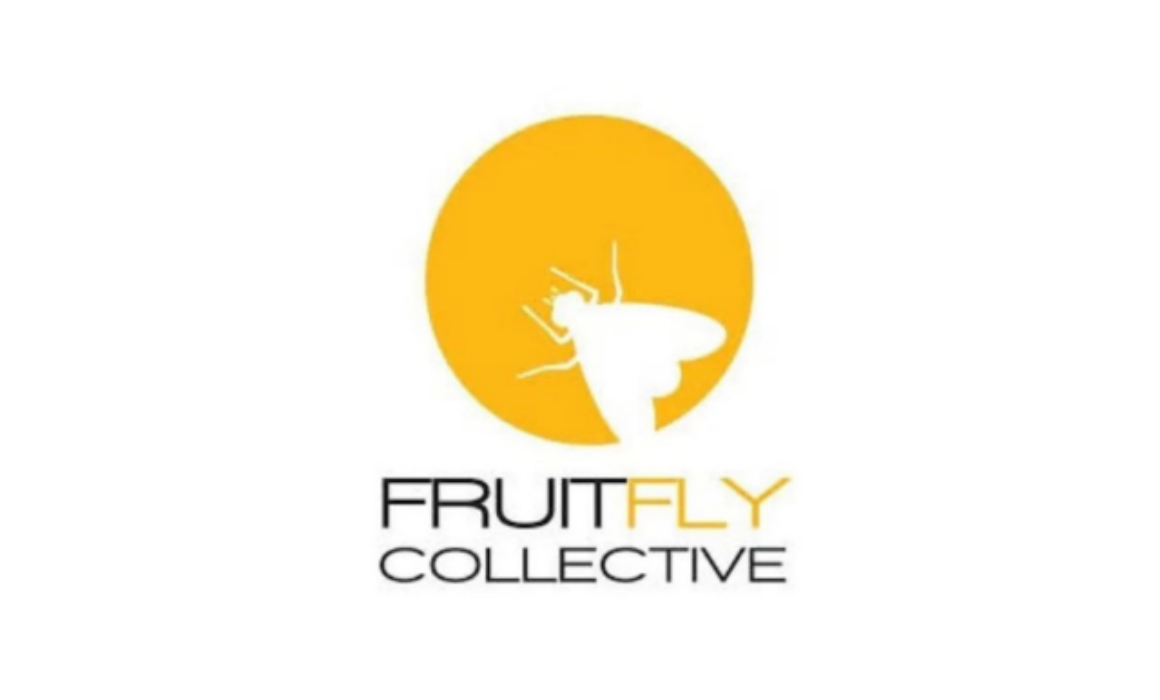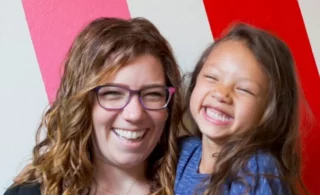
Let's Nail Breast Cancer - Help support our urgent appeal on the 19th - 20th May 2024
Let's Nail Breast Cancer - Help support our urgent appeal on the 19th - 20th May 2024
Let's Nail Breast Cancer - Help support our urgent appeal on the 19th - 20th May 2024
Let's Nail Breast Cancer - Help support our urgent appeal on the 19th - 20th May 2024
Let's Nail Breast Cancer - Help support our urgent appeal on the 19th - 20th May 2024
One of the hardest things to deal with as a parent who has received a breast cancer diagnosis, is telling the children. This article provides advice about how to talk to and support your children throughout your cancer diagnosis.
By Caroline Leek
One of the reasons why it so hard to tell your child that you have cancer is the primal feeling of wanting to protect them from any harm, worry or concern.
The trouble is that children easily pick up on things, and have amazing imaginations. Even if you think you’re hiding your grief, pain, and emotions supremely well – they know something is up. Not telling them, or giving them partial or incorrect information can be more worrying than the truth.
SO HOW TO START?
Here are some tips to help start talking:
- Rehearse what you will say out loud in front of a mirror. It can be frightening to say ‘I have cancer’ for the first time.
- Choose a calm space and a quiet time of day – not before your child’s bedtime if possible.
- Don’t use misleading ideas like ‘I have a bug’ or confusing terms like ‘I have the big C’.
- Use the jigsaw approach if you’re not ready to tell them everything. One small piece at a time.
- If you cry, it shows them that it’s OK to show emotions.
- Give your children time to take the information in – silences can show they are processing what you have said.
- Ask if they have any particular worries. It’s perfectly fine to say you don’t know some of the answers.
- It can be helpful to have some resources to hand. Having something to look at and fiddle with can make you feel more in control (recommend the free app ‘Kids Guide To Cancer’)
It doesn’t matter how old your child is, the key aims are to reassure them, show them love and security, and to open a safe space for them to ask questions.
WHAT TO TELL THEM?
Well, this will depend on the child’s age and development.
Most young children need to simply hear that cancer is a sickness, that you are trying to get better with the help of the doctors. Don’t be surprised if they want to go and play and react like nothing has happened.
For older children you could say something simple like:
“I have an illness called cancer. It means some lumps are growing inside my body that shouldn’t be there. I have many doctors and nurses who are helping me”. They are likely to ask lots of questions, so perhaps prepare yourself with some answers.
A FEW THINGS TO NOTE.
Children can often believe they have caused the cancer by behaving badly or thinking bad thoughts, and they might think cancer is contagious. So tell them, you can’t catch cancer, and nothing they did, thought or said caused the cancer.
Also, keep in mind that nearly every child will either ask or think the question ‘Are you going to die?’. This is the worst question ever but it needs to be addressed. Try not to brush it off, but instead say something like ‘Nothing is for certain yet’. It shows you are not shutting them down and makes them feel more secure.
Teenagers like the truth delivered in a non-patronising way. Often sitting next to them to talk rather than opposite them works better. It’s all about giving them space, and not being too confrontational and staring into their eyes.
Look for any changes in your child’s behaviour as this might be a clue to how they are feeling.
For example, they may return to younger behaviours such as thumb sucking or wetting the bed, or suddenly become afraid of something they were not previously before. Some children display more anger, some complain of headaches/stomach aches and some children will have no reaction which can be hurtful but it’s their way of processing it. All these responses are normal.
HOW TO SUPPORT THEM?
What can you do to make this easier, especially when your life is upside down too? Basically all the support revolves around giving them security with boundaries, facilitating good communication, and showing them love. Ask for help from family, friends, and your child’s school.
SOME IDEAS:
- Tell them of any changes in their routine. Use calendars and daily time tables so they are not surprised by sudden changes, and feel in control of their lives.
- Help them identify their feelings, e.g. by reading stories or drawing them out.
- Include them in the family decisions, and give them small appropriate tasks, e.g. make them chief toilet roll changer.
- Create a worry box. Take any box and tell your child they can either draw or write their worries on paper and park them in the box. You can come to an agreement where you both look at the worries at the end of the day or week, or get their consent to simply have a look from time to time.
- Encourage them to fun & organise special time together – e.g. picnic on the bedroom floor or a film – small things not Chessington World of Adventures.
- Keep communicating – try different methods to see what works for your family, e.g. Post it notes around the house; Weekly family discussions around the table; Going to favourite café to talk once a week; Whatsapp messaging; Talking in the car.
FINAL FOUR LESSONS…
Finally, it often helps parents with their fears when I share these four lessons I learnt from my experience of teaching over 1000 primary school children about cancer.
1) Children are genuinely curious about cancer – even those who are recently affected. They have the capacity to understand if explanations are age appropriate.
2) Children have an amazing ability to deal with the truth that adults often underestimate, and this is largely because they don’t have the same fears as adults.
3) Children enjoy the opportunity to speak about cancer – especially those affected.
4) Every child has some degree of awareness of cancer whether it is news from the media, public health or charity campaigns, or shops on the high street. Most of what they believe is incorrect.
For resources to help with these difficult conversations, go to www.fruitflycollective.com




About the author
Leek, BSC Psychological Science, MSc Neuroscience, PhD Neuroscience and Fellow of the Royal Society of Arts. is the founder and director of Fruit Fly Collective, a multi award winning not for profit organisation that focuses on improving the public’s understanding of cancer as well as supporting individuals and their families affected by cancer. You can find out more support on Caroline’s website, www.fruitflycollective.com and on social media, @fruitflycollective (Instagram/Facebook) and @FruitflyC (Twitter).
Further information
Future Dreams hold a range of support groups, classes, workshops and events to help you and your carers during your breast cancer diagnosis. These are held both online and in person at the London-based Future Dreams House. To see what’s on offer and to book your place, see here.
To return to the homepage of our Information Hub, click here where you can access more helpful information, practical advice, personal stories and more.
Reviewed October 2023
The information and content provided in all guest articles is intended for information and educational purposes only and is not intended to substitute for professional medical advice. It is important that all personalised care decisions should be made by your medical team. Please contact your medical team for advice on anything covered in this article and/or in relation to your personal situation. Please note that unless otherwise stated, Future Dreams has no affiliation to the guest author of this article and he/she/they have not been paid to write this article. There may be alternative options/products/information available which we encourage you to research when making decisions about treatment and support. The content of this article was created by Caroline Leek and we accept no responsibility for the accuracy or otherwise of the contents of this article.
Share

Support awareness research
Donate to those touched by BREAST cancer
Sylvie and Danielle began Future Dreams with just £100 in 2008. They believed nobody should face breast cancer alone. Their legacy lives on in Future Dreams House. We couldn’t continue to fund support services for those touched by breast cancer, raise awareness of breast cancer and promote early diagnosis and advance research into secondary breast cancer without your help. Please consider partnering with us or making a donation.

